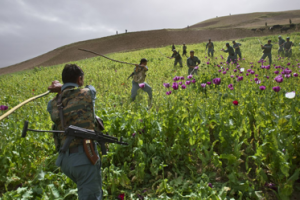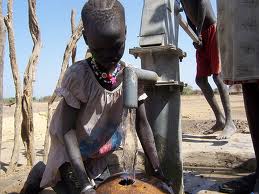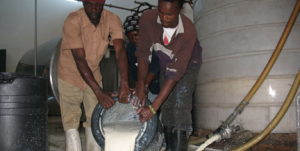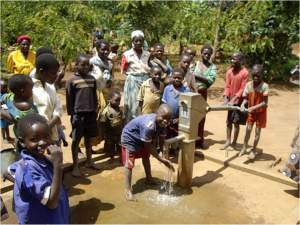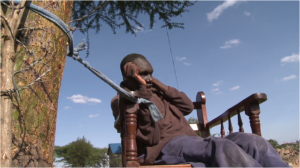The opium industry in Afghanistan is booming! But will it remain this way? The poppy plant, from which opium is derived, has been a staple crop of Afghan farmers for many years now. And for good reason, for poppy is relatively easy to take care of and fetches a lot of money. However, only 10% …
Category: Band-aid for a heart attack
Jun 20
The Nonprofit Disconnect, Part II
Last week, I wrote about how nonprofits should work together to make sustainable change. Rather than organizations focusing on specific issues individually, I think that establishing a type of “nonprofit team” to address multiple aspects of a complex problem could really make a huge impact. Theoretically, I really think this could work – but there …
Jun 16
The Nonprofit Disconnect
Earlier this week, Ryan wrote about the difference between providing technical assistance to a one-dimensional problem and making a change that has a more sustainable impact. Digging a well in an area without access to clean water, for example, is a great solution to the simple problem of not having clean water. However, that one …
Jun 15
Inside the coal industry, part 2
Coal and the future of energy In a recent post I commented about the problems that communities in Kentucky face against coal industries and mountain top removal procedures (see here). People concerned about mining’s environmental impact propose a return to “deep mining. Deep mining is not as damaging as mountain top removal, and it also …
Jun 14
Water for Sudan – Spotlight
Last week, I wrote a couple of posts about the security situation and aid organizations in Sudan. One element that factors heavily into both of these issues is water – that most essential of resources. Now that we’re less than a month away from southern Sudan’s secession from Sudan proper, it’s becoming obvious that resources …
Jun 14
Jamaica’s Ruined Economy
In a world that is run by various forms of financing and spending, countries are continuously dependent on institutions that provide for their ability to develop. And in a reality where even highly developed countries like the US, UK, and Germany are millions of dollars in debt, is it really surprising that developing countries are …
Jun 08
Millenium Villages – Scaling Up
This is a follow up of my last post where I discussed the Millenium Villages. In the last one I discussed the problem of sustainability (is it a good project in the long run?). Here I am going to discuss the problem of scaling up the project. I feel like the project is too ambitious …
Jun 07
Aid to Sudan – Lessons Learned
Many of my posts this past month discussed the impacts and strategies of foreign aid. The more that I’ve researched projects undertaken by aid organizations, the more I’ve seen what commonly works and what doesn’t work. If we take a look at these commonalities, incorporate lessons learned from them and use them to inform current …
Jun 03
The Millennium Villages
The Millennium Villages project offers a bold, innovative model for helping rural African communities lift themselves out of extreme poverty. To date, the Millennium Villages project has reached nearly 400,000 people in 79 villages. The villages are in 10 African countries (Ethiopia, Ghana, Kenya, Malawi, Mali, Nigeria, Rwanda, Senegal, Tanzania, and Uganda), and are located …
May 28
Unlock the Forgotten
A few months ago, CNN journalists David McKenzie and David Formanek covered the horrific conditions that mental patients in an asylum in Mathari, Kenya face in their documentary “Locked Up and Forgotten.” At Mathari Hospital, patients are injected by tranquilizers, raped by other patients, and locked inside the hospital. They consider themselves to be inmates …

